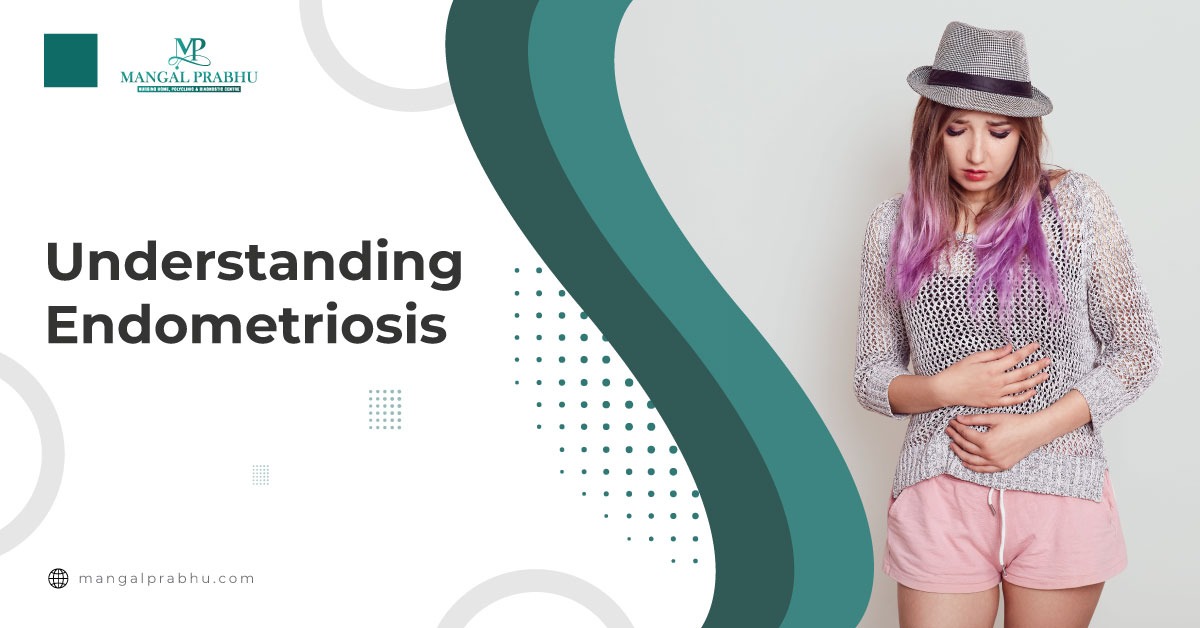
Understanding Endometriosis, Causes & complications
Understanding Endometriosis
Endometriosis is a painful medical condition in which the tissues forming the lining of your uterus grow outside the uterus, i.e. either within the pelvic area or outside that. It makes your periods painful and can also lead to fertility issues in women.
These tissues are called the endometrium. Between every menstrual cycle, these tissues grow surrounding the wall of your uterus and shed if you don’t conceive. The same endometrium-like tissues can grow in other parts of your body, including your abdomen and chest. If you notice the below-listed symptoms of endometriosis, contact a gynecologist in Juinagar, Navi Mumbai for treatment.
Causes and Symptoms of Endometriosis
The main cause of endometriosis is still unknown, but researchers believe there’s a genetic connection. If your mother, grandmother, or other females from your family have a history of endometriosis, talk to your gynecologist about your risk. People also link it to the defect in your ovaries, fallopian tubes, and other pelvic organs.
A common symptom of endometriosis is mild or severe pain in your lower abdomen or lower back. Some women may not experience any symptoms at all, which explains why endometriosis is often left undetected in most cases. Here’s what you might experience.
- Extreme pain in your abdomen
- Abdominal pain during or before periods
- Painful sexual intercourse
- Extreme bleeding
- Infertility
The symptoms may vary from one person to another. Some people might experience extreme pain, while others may have no pain at all (despite the severity of the condition). Some might also experience pain in bowel movements during periods.
Treatment for Endometriosis
Your gynecologist will ask about your future pregnancy plans, age, and the severity of the condition to determine the most suitable treatment for endometriosis. The doctor might prescribe pain medication to relieve your symptoms, although that isn’t a permanent cure for endometriosis. Or, they might recommend hormonal therapy.
The best treatment for endometriosis is laparoscopic myomectomy surgery in Navi Mumbai with medications. However, endometriosis is a chronic condition that might return a few years after the surgery. How soon it returns depends on the severity of the disease.
So, consult your healthcare provider about the risk of its recurrence. Myomectomy is suitable for people with pregnancy plans for the future. If you are not planning any pregnancy, you can get laparoscopic hysterectomy surgery in Navi Mumbai for complete relief.
Complications of Endometriosis
Endometrial tissues that grow outside your uterus can lead to adhesions and scar tissues. This can make your period pain worse over time. Some women with endometriosis might experience fertility issues. There’s a possibility that endometriosis might disappear over time and the lesions and scar tissues that formed due to the endometrial lining can get smaller. This mostly happens when the level of estrogen in your body drops.
It’s best to discuss your health goals with a healthcare provider and work with them to manage endometriosis and its symptoms. Although it’s not a medical emergency, the condition can cause unbearable pain and complications like your pelvic organs sticking to each other or scar tissue formation. These symptoms can get unmanageable.

WHEN SHOULD I SEE A UROLOGIST?
A urologist in Navi Mumbai is a doctor who specializes in diagnosing and treating diseases of the urinary system. This system keeps the body clean by filtering out wastes and toxins and taking them out of the body. The urinary tract includes:
- Bladder.
- Kidneys.
- Ureters.
- Urethra.
A urologist in Juinagar, Navi Mumbai also treats conditions involving the reproductive organs and the adrenal glands. The adrenal glands are located on top of the kidneys. The reproductive systems of males and females are linked closely to their urinary systems.
A urologist is a medical doctor specializing in conditions that affect the urinary tract in men, women and children, and diseases that affect the reproductive system. These conditions range from peeing too much or too little to being unable to father a child.
A patient may be referred to a urologist for treatment of a range of conditions:
- Urinary tract infections (UTIs)
- Incontinence
- Male infertility
- Kidney disease
- Renal transplantation
- Urologic oncology
- Bladder prolapses
- Cancers
- Enlarged prostate
- Erectile dysfunction
- Peyronie’s disease
- Interstitial cystitis or painful bladder syndrome
- Kidney and ureteral stones
- Prostatitis
- Undescended testes, or cryptorchidism
- Urethral stricture.
- Paediatric Urology
What Can I Expect from a Urologist?
- The urologist will normally perform a range of tests to determine what the problem is. Imaging tests, such as an ultrasound, CT, MRI scan, can help the urologist to locate the problem and a urine test may be performed to check for bacteria and other signs of disease.
- If the situation is more serious, a biopsy may be performed; this is traditionally to check for cancer and other disorders. The urologist may also ask you questions about your medical history and carry out a physical examination.
- If you’re experiencing a frequent need to urinate pain in passing urine, difficulty in passing urine, blood in urine, pain in your lower back, or trouble sustaining an erection and early ejaculation. You should consult an expert. In order to maintain a healthy urinary tract, urologists recommend that you regularly empty your bladder and drink water instead of caffeine.
- They also stress the importance of avoiding smoking and maintaining a low-salt diet. By following these simple rules, you can prevent a wide range of urological problems. All tumors or cancer of the kidney, prostate, penis, urinary bladder, and testis are also treated by the urologist.
Conclusion
To prevent the diseases mentioned above, doctors advise staying hydrated and holding pee for long durations as it can severely affect your health. Maintaining hygiene while excreting and proper sanitization is a general rule of thumb.
